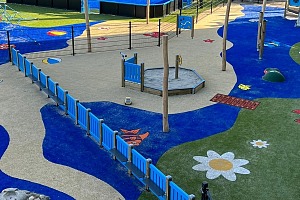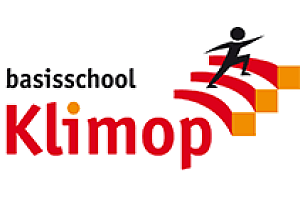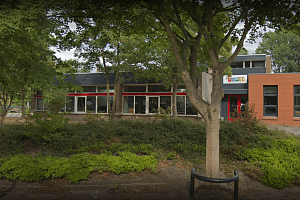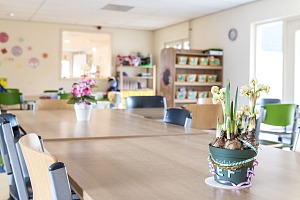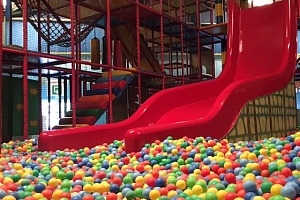BSO (after school care) & VSO (before school care)
The BSO is the place for relaxation after school and for playing.
HappyKids offers care after school, on study days and during school holidays.
After-school care; more than just playing!
After-school care (BSO) is structured leisure time for children, where relaxation and fun are the key concepts. This means that children are as free as possible in their choice of participation in certain activities. There is a varied and interesting range of activities. The activities are offered during school weeks, and during school holidays the range of activities is even more extensive.
The BSO offers shelter, care, protection, fun and personal attention for every child. Children and parents must be able to count on the BSO as a 'second home'.
At the BSO, children can discover the world around them and thus their own talents and interests (broad talent development).
BSO has an educational quality. This does not mean that the BSO has a school character, but that the development of the child in the broadest sense (motor, cognitive, intellectual, social-emotional, creative and musical levels) is stimulated.
Quality care at after-school care has four important pedagogical goals, anchored in the Child Care Act:
1. Providing Emotional Safety:
The care environment offers children a safe base where they can relax and be themselves.
Ensuring that children feel socially safe and accepted is the most important basic pedagogical goal. Only when a child feels peace and confidence will he/she be open to new experiences and discoveries. This 'openness' is a prerequisite for the other basic pedagogical goals.
Providing safety occurs in the interaction between educational staff member and child: comforting when sad, explaining what you are going to do, connecting to emotions or respecting boundaries that a child indicates. The pedagogical employee also contributes to the feeling of safety and security by supervising positive and negative group processes. In addition, the atmosphere and layout of the room is an influential support: the after-school care center should therefore have a quiet corner for toddlers as well as a private chill spot for upper grades.
2. Develop personal competencies:
Children must be given opportunities to get to know themselves in terms of what they want and can do. At daycare, children can practice qualities and skills such as independence, self-confidence and adaptability to change or disappointment. They also learn to discover what they would like to be able to do, persevere when things go wrong or don't work out and come up with ideas and fantasies.
3. Developing social competences:
Because children at daycare often play with other children, under adult supervision, it is a good environment to practice social behavior. In play, role division, 'pretending', turn-taking, 'leading and following' can be tried out. In this way, a child develops social qualities and skills such as investing in teamwork, waiting your turn and empathizing with others and helping others. But also asking for help, dealing with rules and agreements, making friends, entering into and resolving conflicts.
4. Transferring values and standards
The childcare environment transmits values and norms to children, allowing them to internalize the culture of the society in which they grow up.
The shelter has its own 'social traffic rules'. Many of these rules and behaviors are in line with 'how we treat each other in the Netherlands'. At daycare, this is demonstrated and explained to a child: what agreements are there and why are they important? For example, consider eating together at the table and the rituals that go with it, such as singing a song or praying together. Or agreements such as: after playing outside you wash your hands, after playing you put away the toys and it is okay to make mistakes. You are not allowed to take anything away, you cannot be on your tablet or phone all the time and you always say hello to the pedagogical employee or childminder when you leave the daycare.
Professionals
The BSO teams generally consist of permanent employees, linked to their own branch. The employees are trained to work in childcare and often care about children of after-school care age.
Contact with parents takes place during transfers and in the digital environment, the parent portal
Sport and movement
The after-school care center is ideally suited for exercise and playing outside. HappyKids employs sports teachers at every BSO location. They encourage children to exercise by making them enthusiastic and participating, or by introducing new materials and activities. In addition, they deepen the game that the children are already playing by adding something more difficult, or they organize the game by organizing a tournament, for example. In this way they offer more challenge and more development.
When the weather is nice, we play outside every day.
Our pedagogical staff has a wide repertoire of activities and materials. These of course fall within the BSO's range.
HappyKids also periodically offers an additional range of sports and activities, provided by external providers. For example, ski lessons, horse riding lessons or guitar lessons. The aim of this is to introduce children to new sports, games or cultural activities for a small fee. These can be offered on location or externally. If it is external, HappyKids will provide transport free of charge.
More information?
Please look at our pedagogical policy plan or the page of a specific location. Or contact us. We like to help you!
Opening hours of the BSO
The HappyKids BSO is open 52 weeks a year. During "long" school days from 1:45 PM to 6:30 PM. And on "short" school days from approximately 11.30 am, depending on the end time of the until 6.30 pm. We pick up the children from the school at the end of the school day.
During the school holidays (as determined by the government for the North region), we are open all day from 7:30 AM to 6:30 PM.
You can easily calculate the net cost of childcare in our calculation tool on our website.
There are a number of national holidays on which the after-school care is closed and for which the hours are legally part of the agreement. If you are entitled to childcare allowance, you will therefore also receive childcare allowance for these holidays.
These holidays are;
New Year's Day
Easter Monday
Kingsday
May 5
Ascension Day
Whit Monday
Christmas Day and Boxing Day
Study days and other closing days (such as Good Friday) are offered as extra care ("study day") if there are sufficient staff available and are invoiced separately at the normal hourly rate for children who are registered for this. It is important to mention that schools sometimes give students the Friday before the school holidays, for example, off. These days do not fall under the established school holidays for the North region and any additional childcare hours are not part of the agreement. These days are regarded as study days.
The childcare hours for an entire year are invoiced in 12 equal monthly invoices so that you always have the same costs and can apply for the same childcare allowance. There is no final settlement.
Additional childcare hours outside your agreement are also eligible for childcare allowance.
View all our policy and safety plans



